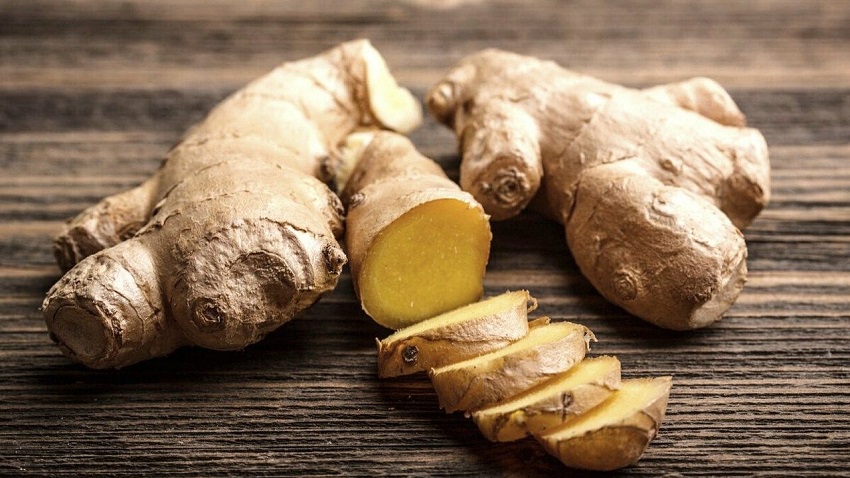In recent years, there has been a growing interest in natural remedies and alternative health practices. One such remedy that has gained significant attention is ginger. Known for its distinctive flavor and medicinal properties, ginger has been used for centuries in various forms. However, the question often arises: can you drink pure ginger? In this article, we will delve into the benefits, potential risks, and ways to incorporate ginger into your diet. So, let’s explore the wonders of this remarkable root!
Understanding Ginger
Ginger, scientifically known as Zingiber officinale, is a flowering plant that belongs to the Zingiberaceae family. It originated in Southeast Asia and is now cultivated in many parts of the world. The ginger root, which is the most commonly used part, is knobby and has a pale yellow color.
Ginger ale with real ginger is renowned for its distinct taste and aroma, which is attributed to the presence of bioactive compounds called gingerols and shogaols. These compounds not only give ginger its characteristic flavor but also contribute to its potential health benefits.
Health Benefits of Ginger
1. Digestive Aid
Ginger has long been used as a natural remedy for digestive issues. It contains enzymes that promote the breakdown of food, aiding in digestion and reducing bloating. Additionally, ginger has been shown to alleviate nausea and vomiting, making it an effective remedy for motion sickness and morning sickness during pregnancy.
2. Anti-Inflammatory Properties
Ginger possesses potent anti-inflammatory properties, which can help alleviate symptoms of various inflammatory conditions, such as arthritis. The gingerols present in ginger inhibit the production of inflammatory chemicals in the body, reducing pain and swelling.
3. Immune System Support
With its high levels of antioxidants, ginger can help strengthen the immune system and protect the body against oxidative stress. Regular consumption of ginger may reduce the risk of chronic diseases and boost overall well-being.
4. Potential Cancer-Fighting Properties
Preliminary studies suggest that ginger may have anticancer properties. Research indicates that certain compounds in ginger can inhibit the growth and spread of cancer cells, particularly in colorectal and ovarian cancers. However, more extensive studies are needed to fully understand the extent of ginger’s cancer-fighting potential.
Incorporating Ginger into Your Diet
There are several ways to incorporate ginger into your daily routine. Here are a few ideas to get you started:
1. Ginger Tea
One of the simplest ways to enjoy the benefits of ginger is by making ginger tea. Peel and slice fresh ginger root, then steep it in hot water for about 10 minutes. Add a squeeze of lemon juice and a drizzle of honey for extra flavor. This soothing and refreshing beverage can be enjoyed throughout the day.
2. Culinary Uses
Ginger adds a unique flavor to both savory and sweet dishes. It can be grated, minced, or sliced and used in stir-fries, curries, marinades, and baked goods. Its versatility allows you to experiment and find creative ways to incorporate it into your favorite recipes.
3. Ginger Supplements
For those who may not enjoy the taste of ginger or have difficulty sourcing fresh ginger, ginger supplements are available in various forms, such as capsules, powders, and extracts. However, it’s essential to consult with a healthcare professional before starting any new supplements to ensure they are suitable for you.
Cautions and Considerations
While ginger is generally safe for most people when consumed in moderate amounts, there are a few considerations to keep in mind:
1. Allergies and Sensitivities
Some individuals may have allergies or sensitivities to ginger. If you experience any allergic reactions, such as hives, itching, or difficulty breathing after consuming ginger, it’s crucial to discontinue its use and seek medical attention immediately.
2. Medication Interactions
Ginger may interact with certain medications, including blood thinners, antiplatelet drugs, and medications for diabetes. It’s essential to consult with your healthcare provider before incorporating ginger into your diet if you’re taking any medications to avoid any potential interactions or adverse effects.
3. Digestive Discomfort
Although ginger is known for its beneficial effects on digestion, some individuals may experience mild digestive discomfort, such as heartburn or stomach upset, when consuming large amounts of ginger. It’s advisable to start with small quantities and monitor your body’s response before increasing the intake.
4. Pregnancy and Breastfeeding
While ginger can be a natural remedy for morning sickness during pregnancy, it’s essential to consult with your healthcare provider before using it, as individual circumstances may vary. Pregnant and breastfeeding women should exercise caution and consume ginger in moderation.
Conclusion
Ginger is a versatile root that offers a myriad of potential health benefits. From aiding digestion to reducing inflammation and supporting the immune system, ginger has proven itself as a valuable addition to a well-rounded diet. Whether enjoyed as a comforting cup of ginger tea or incorporated into various culinary creations, the distinct flavor and potential medicinal properties of ginger make it an enticing choice for many.
However, it’s essential to be mindful of individual sensitivities, potential medication interactions, and to consult with a healthcare professional when in doubt. By incorporating ginger into your diet with moderation and caution, you can savor its unique taste while potentially reaping its health-promoting effects.


